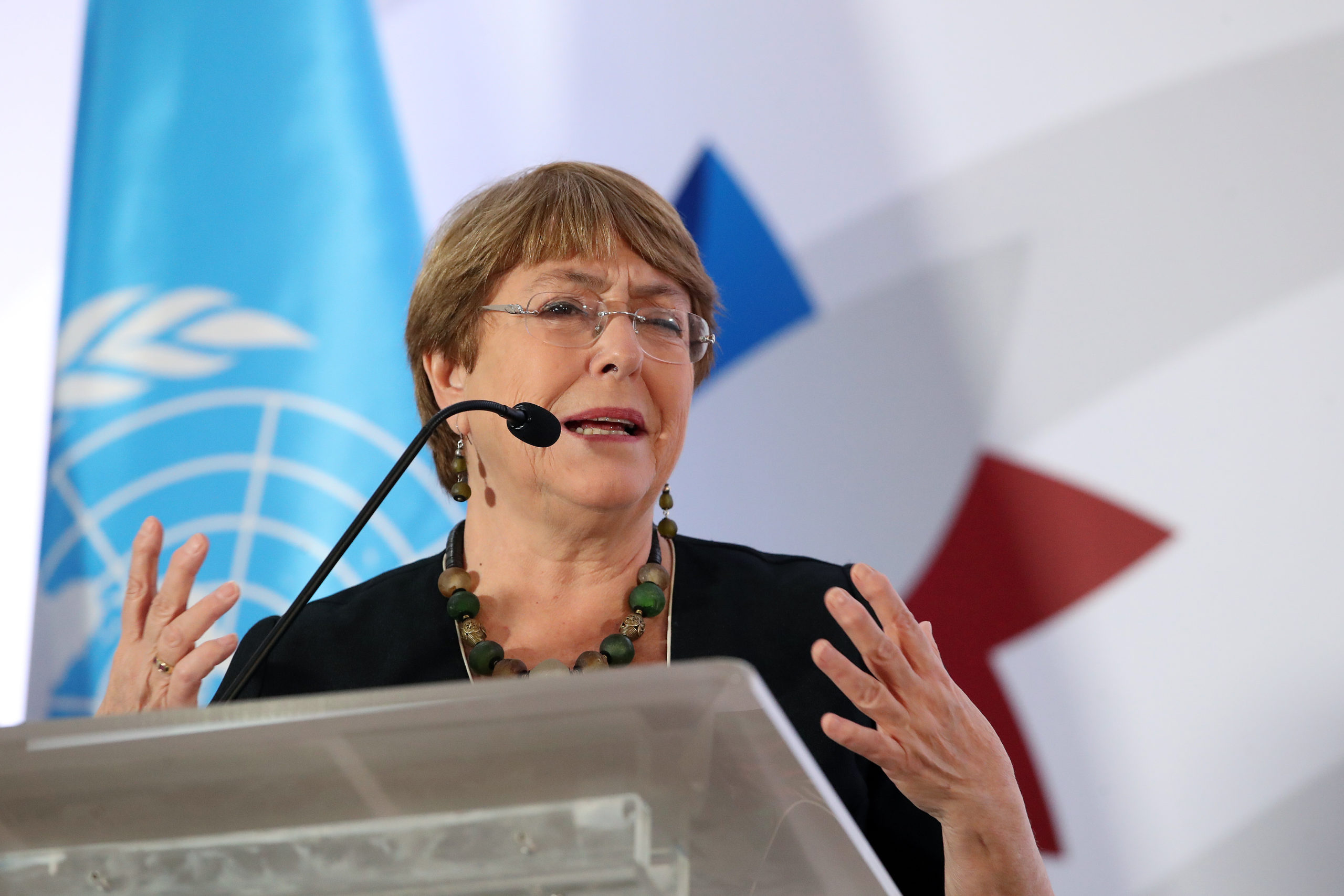
This file photo shows United Nations High Commissioner for Human Rights Michelle Bachelet speaking during the inauguration of the “Seminar of Afro-descendant Women of Latin America” in San Jose, Costa Rica, on December 03, 2019. (Photo by John DURAN / AFP)
MANILA, Philippines — A report by the United Nations Human Rights Council (UNHRC) has found “near impunity” in the Philippine government’s handling of drug war killings.
The report released Thursday cited official figures showing that since President Rodrigo Duterte launched his drug war in 2016 at least 8,663 have been killed.
However, the report noted that some estimates put “the real toll at more than triple that number.”
“Despite credible allegations of widespread and systematic extrajudicial killings in the context of the campaign against illegal drugs, there has been near impunity for such violations,” the report said.
It then pointed out that since the drug war started about four years ago, there had only been one instance—the case of 17-year-old Kian delos Santos—where authorities were convicted for the killing of a drug suspect in a police operation.
“Although the [g]overnment noted that 9,172 police personnel faced administrative cases, it remains unclear how many of these cases are related to extrajudicial killings,” the report said.
Further, the report noted the “insufficient administrative sanctions where there are serious allegations of violations of the right to life” and “the lack of progress in the investigation of anti-illegal drug campaign-related cases referred to the Office of the Ombudsman.”
‘Ominous’
The UNHRC said it also examined “key policy documents” relating to the government’s brutal anti-drug campaign where it found “a troubling lack of due process protections” as well as the use of language calling for “negation” and “neutralization” of drug suspects.
“Such ill-defined and ominous language, coupled with repeated verbal encouragement by the highest level of State officials to use lethal force, may have emboldened police to treat the circular as permission to kill,” the report stated.
It pointed out that police raids on private households were “routinely carried out without warrants.”
The report also flagged alleged “falsified” evidence used in post-operational spot reports.
The UNHRC also studied 25 operations, where 45 people were killed in Metro Manila between August 2016 and June 2017.
The council’s analysis showed that the police “repeatedly recovered guns bearing the same serial numbers from different victims in different locations.”
“The pattern suggests planting of evidence by police officers and casts doubt on the self-defense narrative, implying that the victims were likely unarmed at the time of killing,” the report said.
Stop ‘Tokhang’
Among the recommendations of the UNHRC included discontinuance of the government’s “Oplan Tokhang.”
It also pressed the government to “urgently put an end to extrajudicial killings, arbitrary detention and other violence targeting suspected drug offenders and people using drugs” and “[a]bolish the compilation and publication of ‘drug watch lists’ at all administrative levels.”
The report likewise recommended that the government “undertake a comprehensive review of legislation and policies relating to narcotics, including revisiting the mandatory penalties for drug offenses.”
It also called for the “decriminalization of personal possession and use of certain drugs” and the implementation of “alternative measures to conviction and punishment and other human rights-based responses.”
Additionally, UNHRC’s report said the government should “[e]nsure adequate assistance to families of victims of drug-related killings, including financial aid, legal support, and psycho-social services.”
The UNHRC said its report was based on 893 written submissions, “substantial input” from the Philippine government, analysis of legislation, police reports, court documents, videos, photos, and other open-source material, as well as interviews with victims and witnesses.
The report will be presented in the 44th UNHRC regular session in Geneva, Switzerland, this month.
“The Philippines faces major challenges – structural poverty, inequality, armed conflict, frequent natural disasters, and now the COVID-19 crisis. It is vital the Government’s responses be grounded in human-rights approaches and guided by meaningful dialogue,” UN High Commissioner for Human Rights Michelle Bachelet said in a statement.
“Accountability and full transparency for alleged violations are essential for building public trust. Unfortunately, the report has documented deep-seated impunity for serious human rights violations, and victims have been deprived of justice for the killings of their loved ones. Their testimonies are heartbreaking,” she added.
Bachelet, nevertheless, expressed the UNHRC’s readiness to “constructively and concretely” support the Philippines in implementing the report’s recommendations in an “effort to halt the many long-standing, widespread human rights violations in the country, and to prevent their recurrence.”

